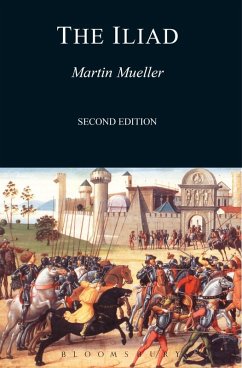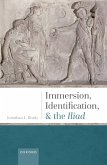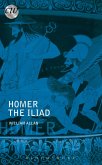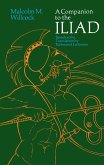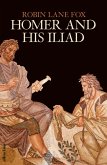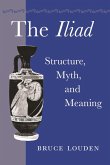No Western text boasts a life as long as the "Iliad", and few can match its energy and glory. This introduction to Homer's poem sees it as rooted in a particular culture with narrative and thematic conventions that are only partly explained by assumptions about the properties of oral poetry. Professor Mueller follows Plato and Aristotle in seeing the plot of the "Iliad" as a distinctly Homeric 'invention' which shaped Attic tragedy and the concept of dramatic action in Western literature. In this second edition the text has been revised in many places, and a new chapter on Homeric repetitions has been added.
Bitte wählen Sie Ihr Anliegen aus.
Rechnungen
Retourenschein anfordern
Bestellstatus
Storno

